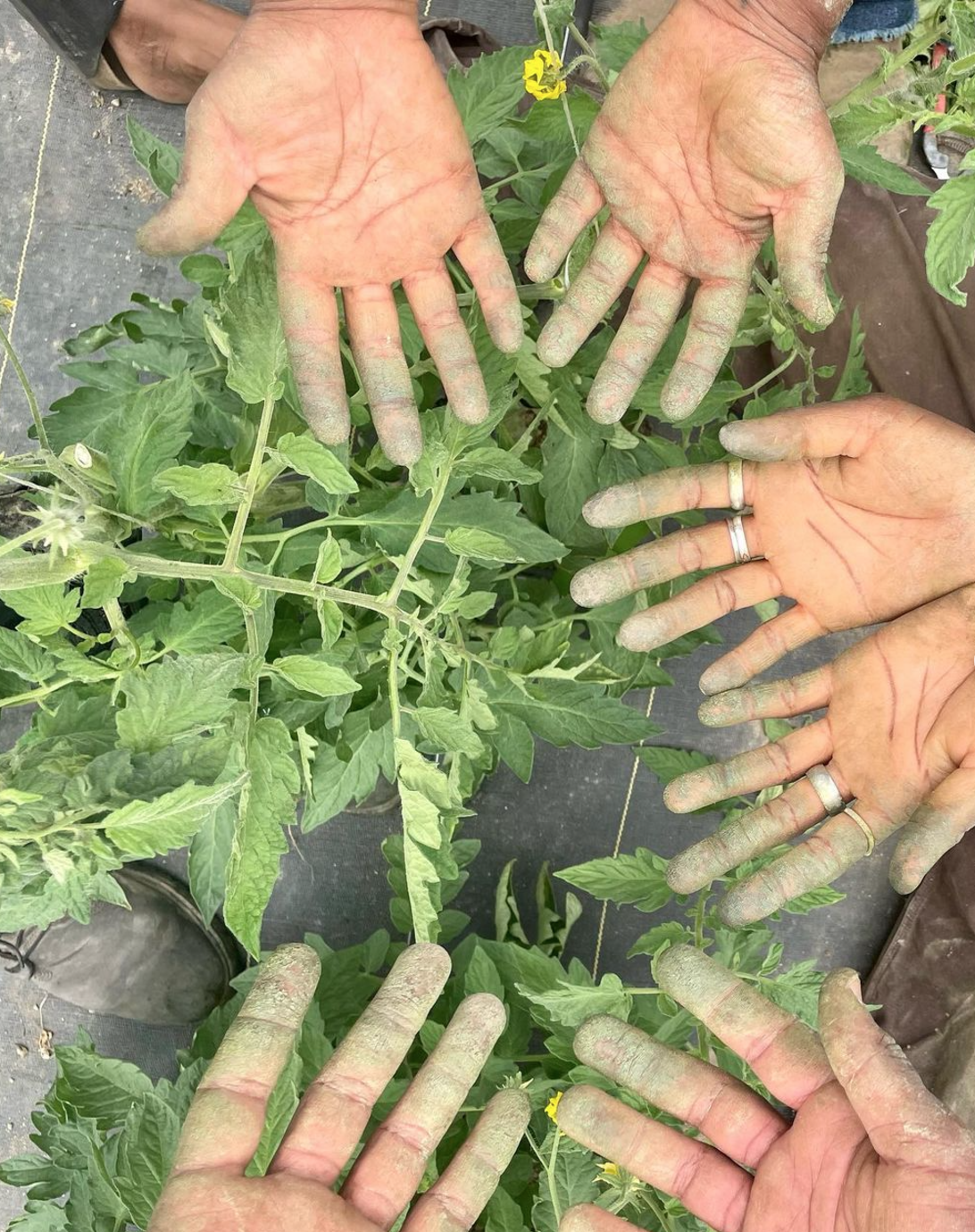
Get Involved
Here’s what your support will go towards:
$100,000, buys us a cultivating tractor and other necessary implements to double our production and make our work more efficient.
$50,000 buys us a distribution van! - Currently, we rely on borrowed vans and the generosity of our community partners (Long Table Harvest, Columbia County Sanctuary Movement and Rolling Grocer).
$25,000 buys us a walk-in cooler - a new cold storage can increase our capacity to receive, store, and ship local food from several food distribution projects across the Northeast.
$20,000 funds two weeks of programs and operations.
$10,000 raises our new greenhouse, meaning we can start more seeds, give away more seedlings, cure more storage vegetables, and experiment with more crops.
$5000 secures one week of livable wages for our all-Black farm staff.
Other ways you can support Grow Food, Not Prisons:
Promote our campaign on your newsletter, social media platforms & networks between November 2 - December 31, 2024. See out fundraising toolkit here.
Fundraise in our honor. Hold a giveaway, dinner, etc and dedicate the proceeds to Sweet Freedom Farm.
Share your donors! We are stronger when we support each other, we are stronger when we share our resources. Can you share your abundance with us?
Support Black Food Sovereignty
WHAT WE DO
It all begins with an idea. Maybe you want to launch a business. Maybe you want to turn a hobby into something more. Or maybe you have a creative project to share with the world. Whatever it is, the way you tell your story online can make all the difference.
We grow food.
We grow culturally relevant, nutrient dense and organic food, abolitionist sugars, and cultivate landrace seed varieties. We're committed to regenerative agriculture that nurtures the land. Here’s a look at some of the sustainable farming techniques we’re practicing:
Low-Till Farming: We disturb the soil as little as possible to protect its structure and health.
Organic (Not Certified): Though we’re not officially certified organic, we adhere to organic principles, avoiding synthetic chemicals and focusing on natural, sustainable methods to grow healthy crops.
Minimal Spray: We use minimal pest control sprays and opt for natural solutions like diatomaceous earth and kaolin clay to protect our plants while preserving the health of the ecosystem.
Cover Cropping: To increase soil fertility and structure, we plant nitrogen-fixing legumes, peas, oats, and tillage radish. We also grow mustard as a natural biofumigant to suppress soil-borne pests.
Heritage Crops: By growing heritage crops like ethiopian mustard, collards, cabbage, tomatoes, eggplants, peppers, watermelon, and sweet potatoes, we’re helping to sustain cultural foodways and strengthen the bond between our farm and the communities we serve.
We get food to communities impacted by the prison industrial complex.
Our farm currently feeds 400+ justice impacted families through the Multicultural BRIDGE Program, Poughkeepsie food pantries like Dutchess Outreach, grassroots and mutual aid organizations (Columbia County Sanctuary Movement, Land In Black Hands); supplies food to and organizes, delivers, and distributes fresh produce at the free farm stand every third weekend of the month in front of the Sing Sing Correctional Facility with the Sing Sing Family Collective.
We host community on the land.
We are dedicated to nurturing Black farmers. Our majority-Black farm team is comprised of diverse levels of experience, and we function as a teaching farm, supporting the growth of young Black farmers. We provide hands-on training and support access to a broad range of professional development opportunities, including tractor training workshops, learning how to set up irrigation, greenhouse management, and more. One goal is to equip our farmers with a well-rounded farm education, so they are empowered to utilize this knowledge in their future agricultural goals.
We nourish Black farmers
Our core team hosts regular community gatherings, including Second Saturdays with the Sweeties: Community Farm Days, Annual Sorghum Harvest and Maple Moon gathering where we connect with our project partners and neighbors. Through our shared time on the land, we center Black folks, and create space for our predominantly BIPOC community members to reconnect and strengthen relationship with the land.






